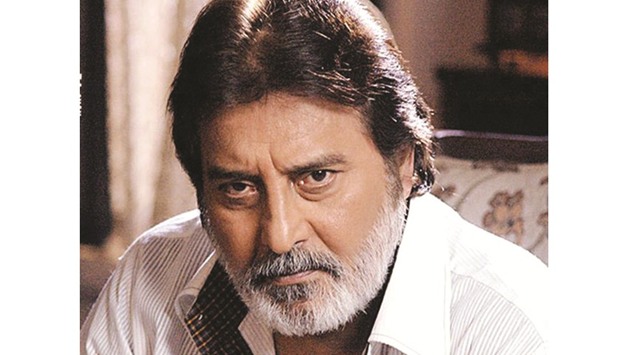Vinod Khanna, a Bollywood superstar who later embraced politics, died here yesterday morning following a battle with cancer, marking the end of an era in Hindi films. He was 70.
He is survived by his former wife Geetanjali and their sons Akshaye and Rahul, who are now actors, and his present wife Kavita and son Sakshi and daughter Shraddha.
Bollywood was present in large numbers when the actor was cremated in the evening at the Hindu Crematorium, Worli.
President Pranab Mukherjee and Prime Minister Narendra Modi joined the nation in mourning the death of the villain-turned-hero who acted in some 150 films in a career that spanned five decades.
Khanna was admitted to Sir H N Reliance Foundation Hospital early in April for cancer but the family was then tight-lipped about his condition.
The hospital said he died at 11.20am due to advanced bladder carcinoma. The actor was the Bharatiya Janata Party (BJP) member of the Lok Sabha from Gurdaspur in Punjab. He was into his fourth term as MP.
While President Mukherjee called him “a highly talented and acclaimed actor and MP”, Modi said Khanna was “a popular actor, dedicated leader and a wonderful human”.
Maharashtra Chief Minister Devendra Fadnavis said Khanna was “one of the greatest legends of Indian cinema”.
Khanna debuted in Bollywood in 1968 with Man Ka Meet as a villain. After playing various supporting roles in movies like Purab Aur Paschim, Sachaa Jhutha and Mastana, he got his first big break as the lead actor in 1971 in Hum Tum Aur Woh.
He featured in some of the biggest Bollywood hits.
Born in Peshawar (now in Pakistan) into a business family, Khanna did his schooling in Mumbai, Delhi and Nashik and graduated in B.Com from Mumbai’s Sydenham College.
At the height of his career, Khanna suddenly became a disciple of Bhagwan Rajneesh, the founder of Osho, and lived in Pune for five years.
He returned to Bollywood in 1987 and joined the BJP too.
He was appointed minister of state for culture and tourism in July 2002 and later minister of state for external affairs in the government of then prime minister Atal Bihari Vajpayee.

President Mukherjee called Khanna u201ca highly talented and acclaimed actor and MPu201d
